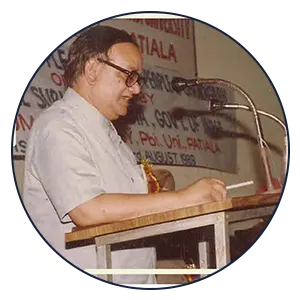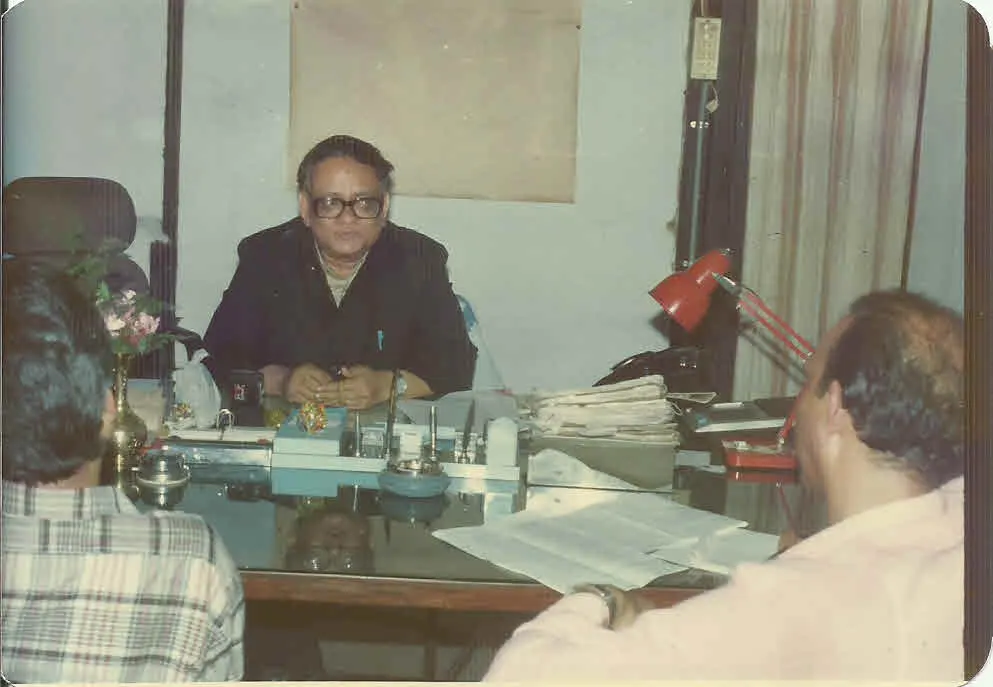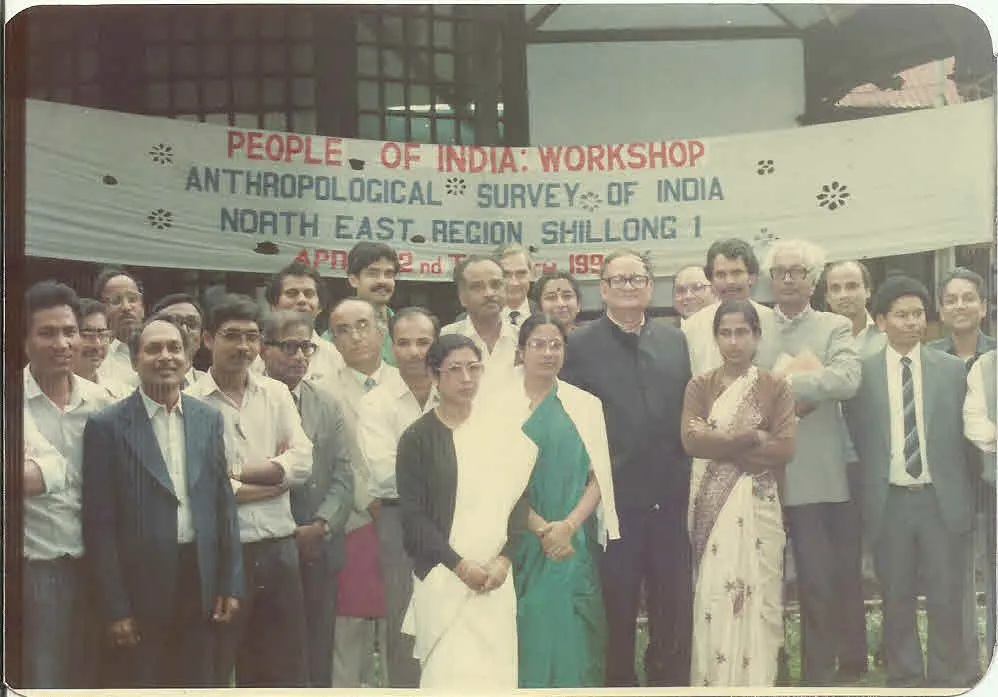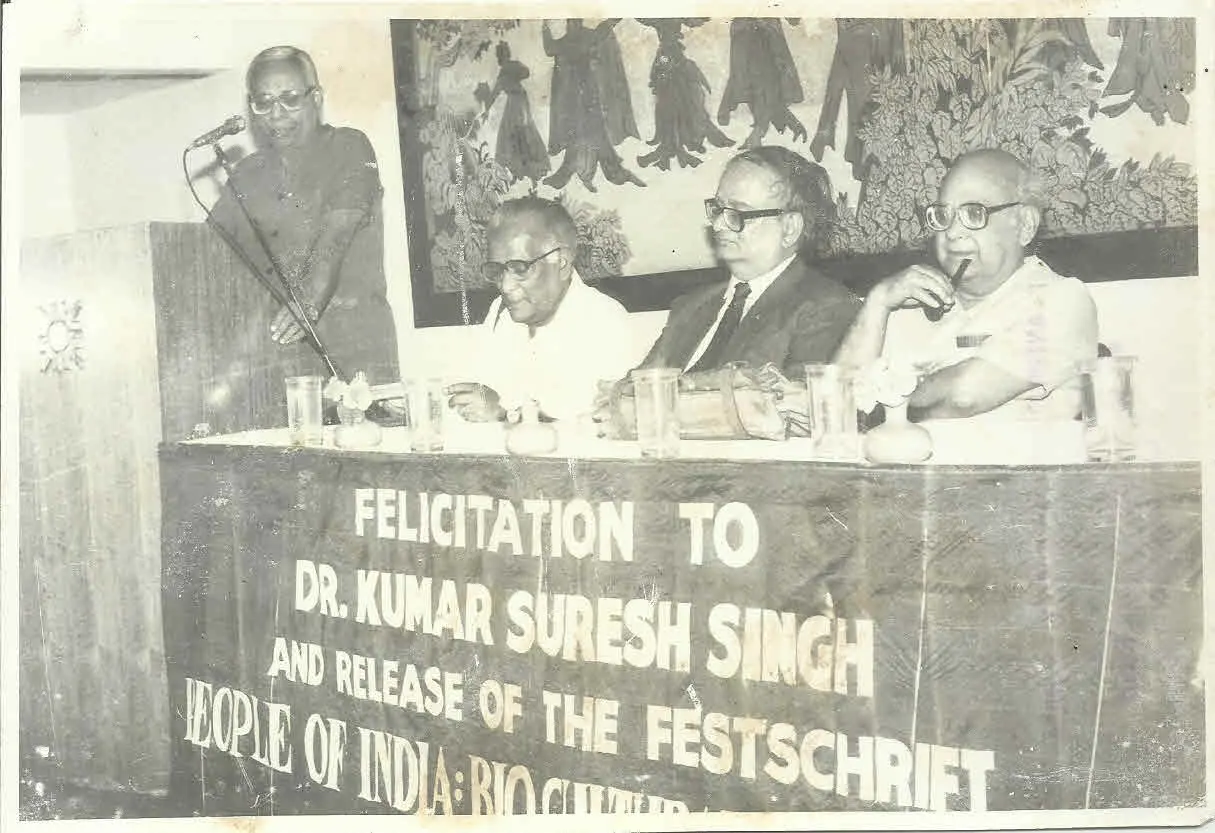

Dr Kumar Suresh Singh was a versatile scholar from being an administrator to a historical ethnographer. In course of his long tenure of explorations on tribal matters, he published many academic papers on relevant tribal themes, such as tribal movement, agrarian relations, tribal customary law, tribal economy, tribal women, and so on. He adopted a combined methodology of historical research and anthropological fieldwork in his landmark studies. As a social historian, he brought the need for the study of tribal society and culture. To a social anthropologist, the idea conveyed by his research was to study tribal society from the perspective of time and space. He believed that there could be no social anthropology without social history in India and that there could be no meaningful social history without social anthropology. We are indeed grateful to Late Dr K. S. Singh for his contributions to the academic world, especially to the tribal world of development.
With his postings in areas inhabited by various tribal communities, he was exposed to a myriad of their customs and cultures, the Ho, and the Munda community. The extraordinary influence of these cultures on his life can be witnessed by the fact that his last wish was that his last rites be performed as per the Munda rituals and that his ashes be immersed in the Tajna river in Khunti.
He converted his thesis into a book titled ‘The Dust Storm and the Hanging Mist: A Study of Birsa Munda and His Movement in Chotanagpur 1874-1901’, published by Firma K. L. Mukhopadhyay, Calcutta, in 1966. It is a combination of religious and political movements representing the struggle and aspiration of their life, sowing the stirrings of nationalism among the tribal. From a larger perspective, the Birsa Movement shared an anti-British credo with the Indian National Movement. It also resonated with the Indian spirit of renaissance and reform for dignity and self-esteem.
He was selected as an Indian Administrative Officer (IAS) in 1958 and opted for the Bihar State cadre. His first posting in 1959 as an Assistant Settlement Officer was in Singhbhum. This was his first exposure to a 'Ho tribal community. This allowed him to study the agrarian system and social structure. He learned the Ho language and surveyed 100 villages. This study was converted into village notes. He worked as Sub-Divisional Officer in Khunti, which was predominantly a Munda area. He learned the Mundari language and participated in tribal feasts and festivals. These exposures provided him with a holistic view of the tribal worldview.
Dr Singh worked as Deputy Commissioner of Palamau during 1965-1968 when drought struck it. He successfully tackled the famine of 1967. He was the Divisional Commissioner of South Chotanagpur Division from February 1978 to June 1980. He officiated as Vice- Chancellor of Ranchi University for a short duration in 1980. He was one of those intellectuals whom people will remember as an Indian Scholar Administrator. Most of his publications covered cultural, biological, and linguistic dimensions in the field of anthropology and academics.
It was the wish of Dr Singh that his last rites be performed as per the Mundari rituals and that his ashes be immersed in the Tajna river in Khunti. Dr Singh started his career as an IAS from Khunti. This was his Karmakshetra, where he was immersed with Birsa Munda. Dr Singh’s family organised his last journey from Delhi to Khunti and his last wishes were performed on the shores of the Tajna, in the presence of his friends and well-wishers.
His Publications & Awards: (1) Books authored – 11; (2) People of India Series as author/co-author – 12; (3) As general editor of ‘People of India’ series – 43; (4) Articles published in edited books – 61; (5) Articles in Journals – 68; (6) Book Reviews in Journals – 42; (7) Books edited– 14; and (8) Awards & Distinction – 09.

